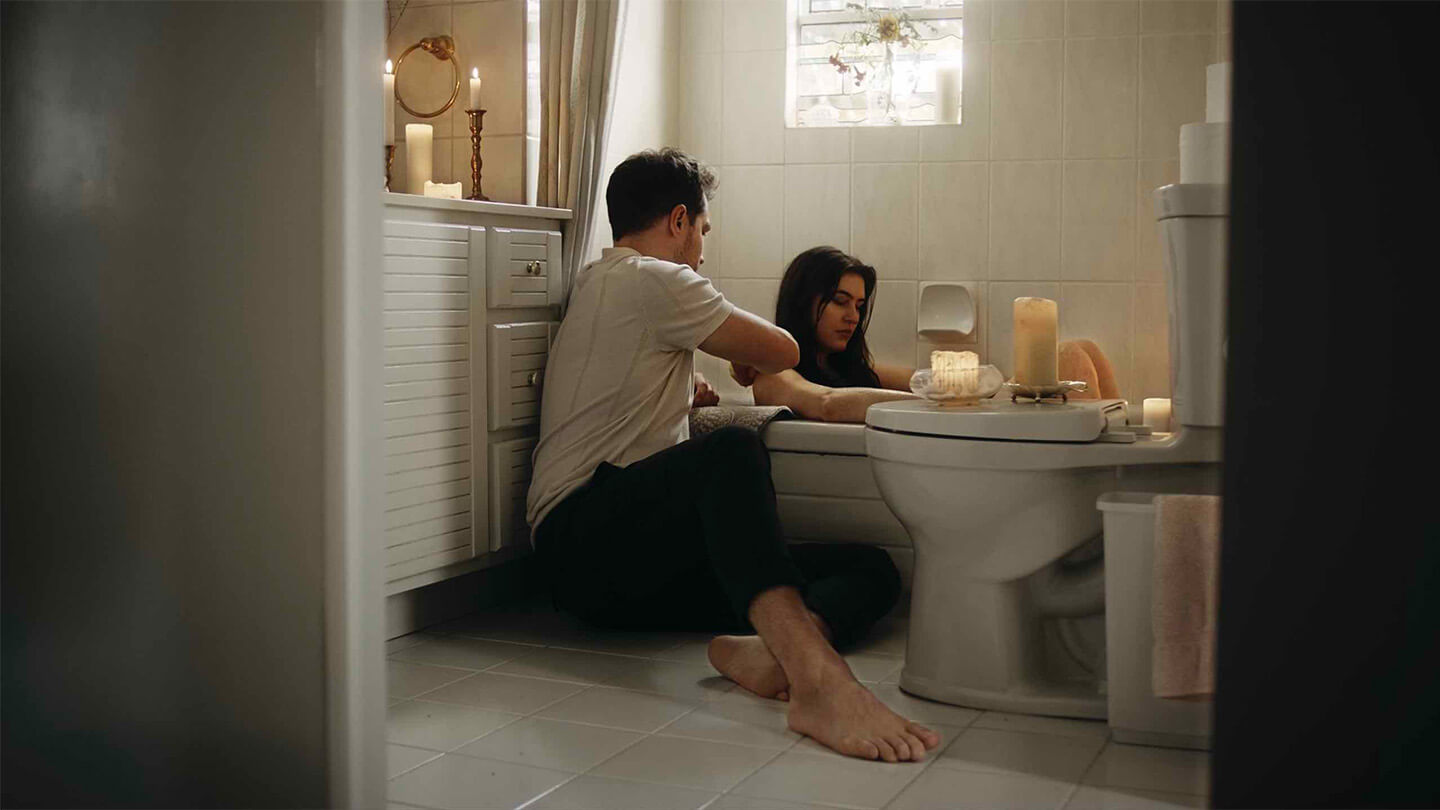Valentina Tross’ God Willing, written by Hooriah Riaz, is ambitiously and beautifully melodramatic, if somewhat constrained by its runtime. At under 16 minutes, the film portrays the last leg of a musician’s life using an emotional excess that perfectly fits the premise. The closer it gets to the end, the narrative gets further entrenched in the protagonist’s delusions, precious as they are to her.
There are only two characters in the film, Luna (Rianne Delahunt) and her manager and ex, Gus (Jake Foy). As the film opens, Luna is told the latest in a series of losses: her agency has dropped her. The media has turned its cameras elsewhere, the magazines splattered with images of the new Luna Levitt. The old one spends her days in slow decomposition alternating with desperate memory and delusions of continued popularity. The latter two show up first as snippets of concert performances and red-carpet appearances; she is loved, her attention is craved, and she stands unparalleled. Then, light begins to be the manifestation of her delusion. Her bedroom, where most of the action takes place, becomes increasingly bright.
Disappointingly, some of this lighting is inconsistent. Whether it was a production error or a creative decision to light Luna’s early close-ups dully is unclear, although one is inclined to believe it is the latter. This lack of nuance generally goes away as the plot progresses. The film uses sound design to depict the raving crowds to circumvent budgetary constraints. Yet, it serves the mood of the film when the sound carries to Luna’s empty house. The ghost of her past demand haunts her house as it haunts her.
Light, instead of darkness, becomes the realm of this ghost. Luna sings, believing her singing can bring the lamps to life. Delahunt cuts a believably tragic, delirious figure. Soon, the light becomes her lifeline, her link to the past, embodying camera flashes and stage lights. The melodramatic quality strengthens as she approaches the end. She surrounds herself with all the lamps she can find in the house until Gus, temporarily, interrupts. Gus becomes the crucial key to the tragedy: Luna gives him the (final) slip in a momentary lapse of his watch.
God Willing has its flaws, not quite delivering on the dramatic scale of its story, but it makes an impact regardless. Intercutting Luna’s delirium with shots of the unsettlingly lifeless house, for instance, adds an element of horror that sits rather well with the ruin unfolding in Luna’s bedroom. Its destiny-like quality is exactly why melodrama works so well for the film.
God Willing: Tale of Slow Ruin and its Violent Grief
-
Direction
-
Cinematography
-
Screenplay
-
Editing
-
Music

Where can I watch it? Seems like an awesome concept!